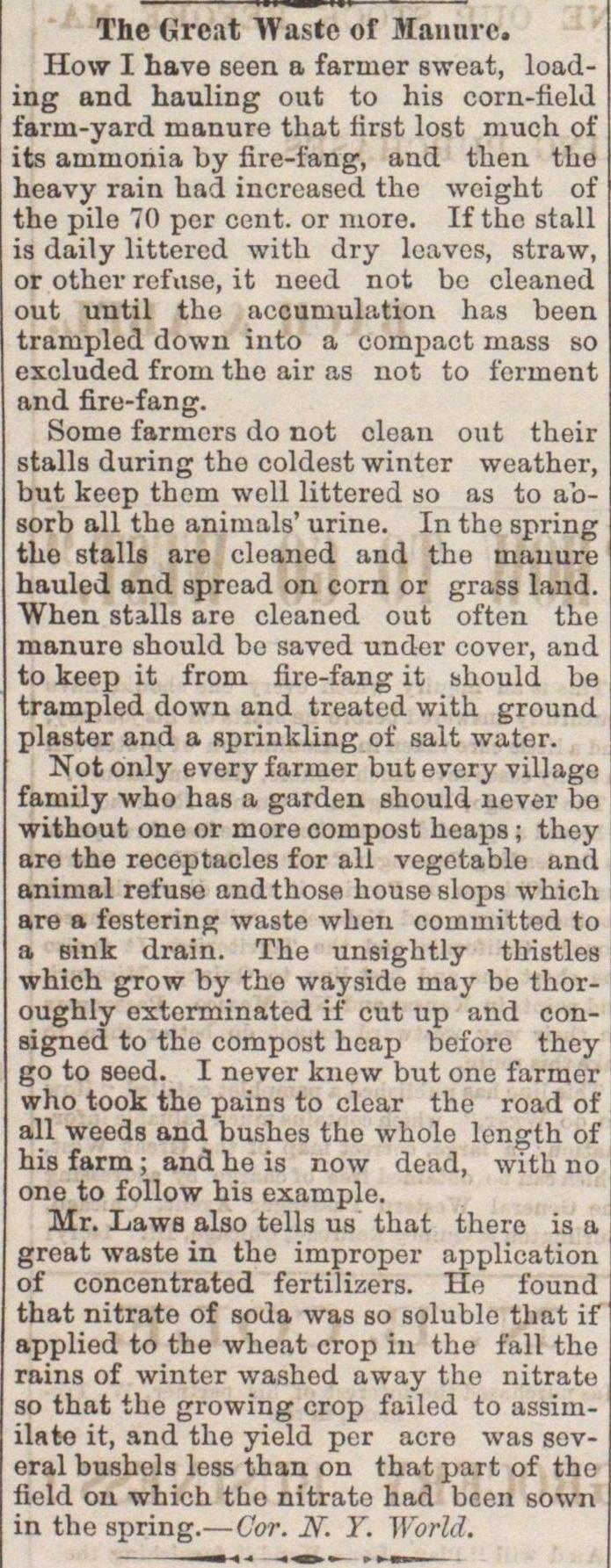The Great Waste Of Manure

How I have seen a farmer sweat, loading and hauling out to his corn-fiold farrn-yard manure that iirst lost niuch of its ammonia by fire-fang, and tlien the heavy rain had incrcased the woight of the pile 70 per cent. or more. If the stall ia daily littered witli dry leaves, straw, or othev rofuso, it need not bc cleaned out until tho aecumulation has been trampled down into a compact mass so excluded from the air as not to i'orment and fire-fang. Some farmers do not clean out their stalls during tho coldest winter weather, but keep them wcll littered so as to absorb all tho animáis' urine. In tho spring the stalls are cloaned and the manure hauled and spread on corn or grass land. When stalls are cloaned out often the manure should bo saved undcr cover, and to keep it from fire-fang it should be trampled down and treated with ground piaster and a sprinkling of salt water. Not only every farmer butevery village family who has a garden should never bo without one or more compost heaps ; they are the receptaoles for all vegetable and animal refuse andthose house slops which are a festering waste when coinmitted to a eink drain. The unsightly thistles which grow by tho wayside rnay be thoroughly oxterminated if cut up and consigned to the compost heap before they go to seed. I never know but one farmer who took the pains to clear the road oí all weeds and bushes the whole longth oi his farm; andheis now doad, with no one to follow his example. Mr. Laws also tells us that thero is a groat waste in the improper application of concentrated fertilizers. Ho found that nitrate of soda was so soluble that if applied to the wheat erop in the fall tho rains of winter washod away the nitrate so that the growing erop failod to assiinilate it, and tho yield per aero was soveral bushels less than on that part of tho field on which the nitrato had been sown in the spring. -
Article
Subjects
Old News
Michigan Argus